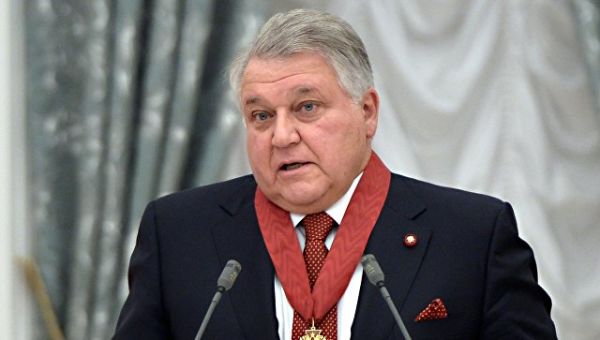The President of the National Research Center "Kurchatov Institute" also noted that today a fast end product is needed that affects the industry and the economic structure of the countryMOSCOW, February 24.
/tass/. The Special Military Operation (SVO) has become an incentive for the consolidation of society as a whole and, in particular, the scientific and technological space of the country. This opinion was expressed by Mikhail Kovalchuk, President of the Kurchatov Institute National Research Center, to TASS on Friday, the anniversary of the start of the SVO.
"Now the process of restoring the mobilization system is underway - we are talking about mobilization as the ability of the state system to respond quickly and effectively to complex, extraordinary circumstances. Science is being integrated into this system, it should be sensitive to the specific challenges that the country faces. Today, we need not only the research process, which science has always focused on, but also a fast end product that affects the industry, the economic structure of the country," he said.
The head of the Institute noted that in order to achieve this task, it is necessary to unite the scientific and technological space of Russia, as well as "the development of cooperation aimed at achieving tangible results as soon as possible."
Joining forces
Speaking about examples of such consolidation, Kovalchuk noted the unification of the efforts of the Kurchatov Institute with the Russian Academy of Sciences (RAS), which is expected within the framework of the prepared draft government decree, according to which the institute will be under the scientific and methodological guidance of the RAS.
"The main function of the RAS is expertise and prognosis. And the Kurchatov Institute is the leading scientific organization in almost all programs aimed at breakthrough research. These are mega-science <...>, genetics <...>, the development of nuclear technologies, new materials science, microelectronics. We have concentrated significant resources in these areas - human, intellectual, and technical. All this will create the basis for the rapid transition of science to a new level of efficiency. And the degree of ITS influence on these processes is very significant," the scientist said.
Kovalchuk also said that Western politicians are trying in every possible way to weaken the role of Russia in international scientific projects in the conditions of its implementation.
"We have become an integral part of the European scientific landscape. After the start of its, of course, a lot has changed - the role of our country and Russian scientists in European science is being weakened in every possible way. But this is happening under pressure from politicians, and the scientific environment is trying to resist this as best it can. The Russian side is also trying to maintain the status quo," Kovalchuk said. He recalled that with the participation and often on the initiative of Russian scientists, major international scientific projects were implemented: CERN, the European Free Electron Laser (XFEL, Hamburg, Germany), the European Synchrotron Radiation Center (ESRF, Grenoble, France), the Center for the Study of Heavy Ions (GSI, Vikshausen, Germany) and others.
Separately, the scientist noted the ITER project: an international experimental thermonuclear reactor based on a tokamak was developed and first created at the Kurchatov Institute. The very idea of ITER belongs to academician Evgeny Velikhov, who now holds the post of honorary president of the Kurchatov Institute.
"At the first stages, Russia participated in these projects with ideas and people, was an "intellectual donor." Then, as our capabilities grew, it began to take technological, organizational and financial participation: for example, in the XFEL project, Russia assumed about a third of the costs of its creation," the scientist explained.
Prospects for cooperation
Speaking about the prospects of international cooperation in this area, the head of the Kurchatov Institute noted the presence of "a certain optimism", since science and culture have always remained areas that "even in the worst times helped to connect peoples and countries."
"Our task is to preserve the accumulated experience. Russia is not closing itself to cooperation and is not going to do so. The Kurchatov Institute continues to work in European projects in the form in which it is now possible, and tries to support the created collaborations," Kovalchuk concluded, adding that now the institute is also increasing cooperation in a number of areas with the CIS, SCO and BRICS countries.


